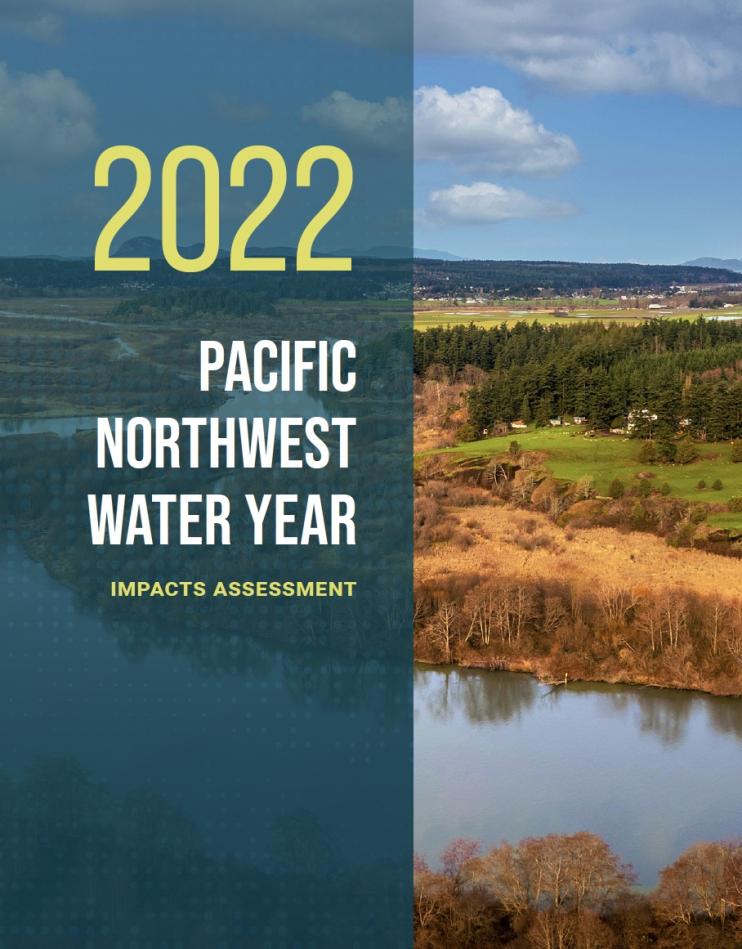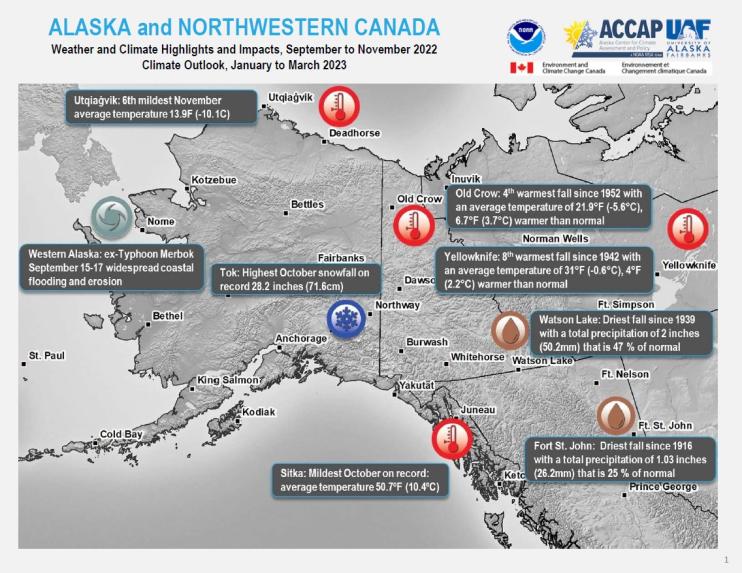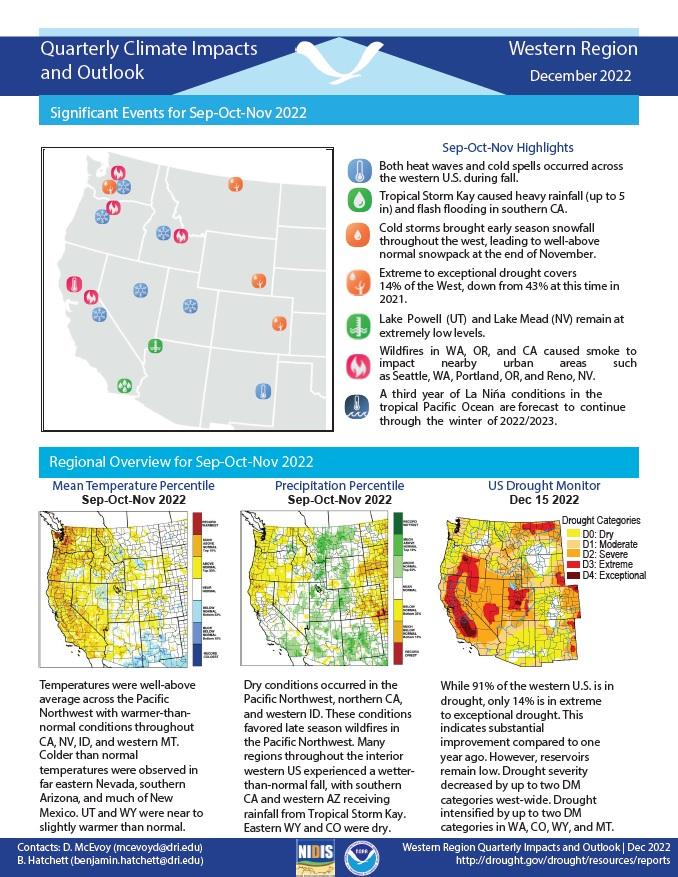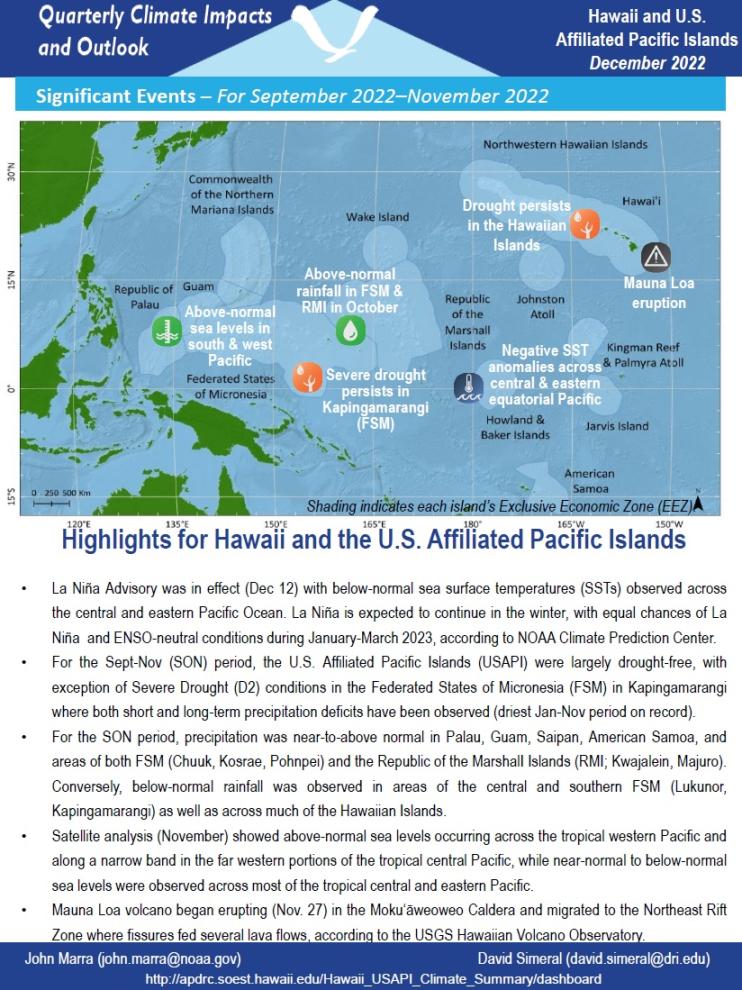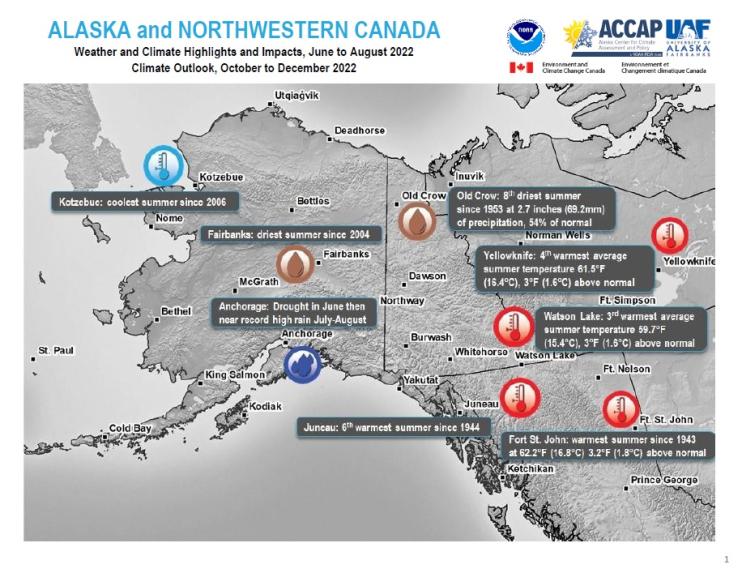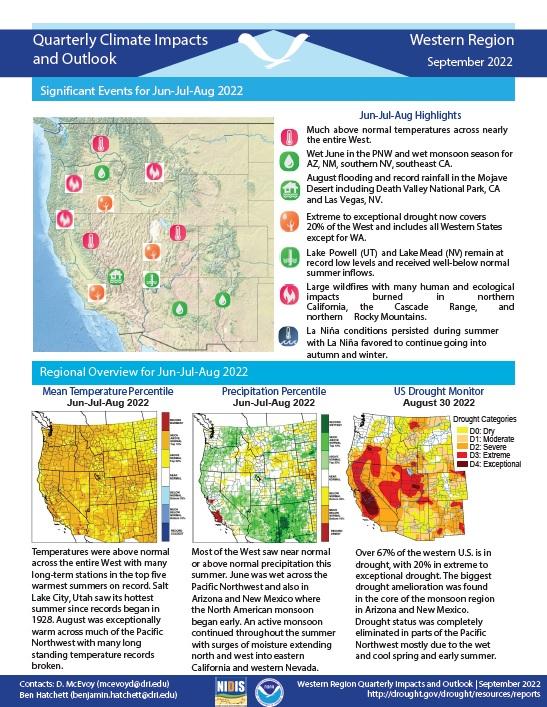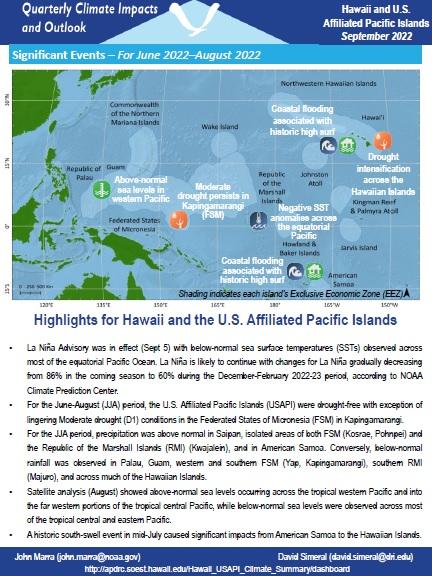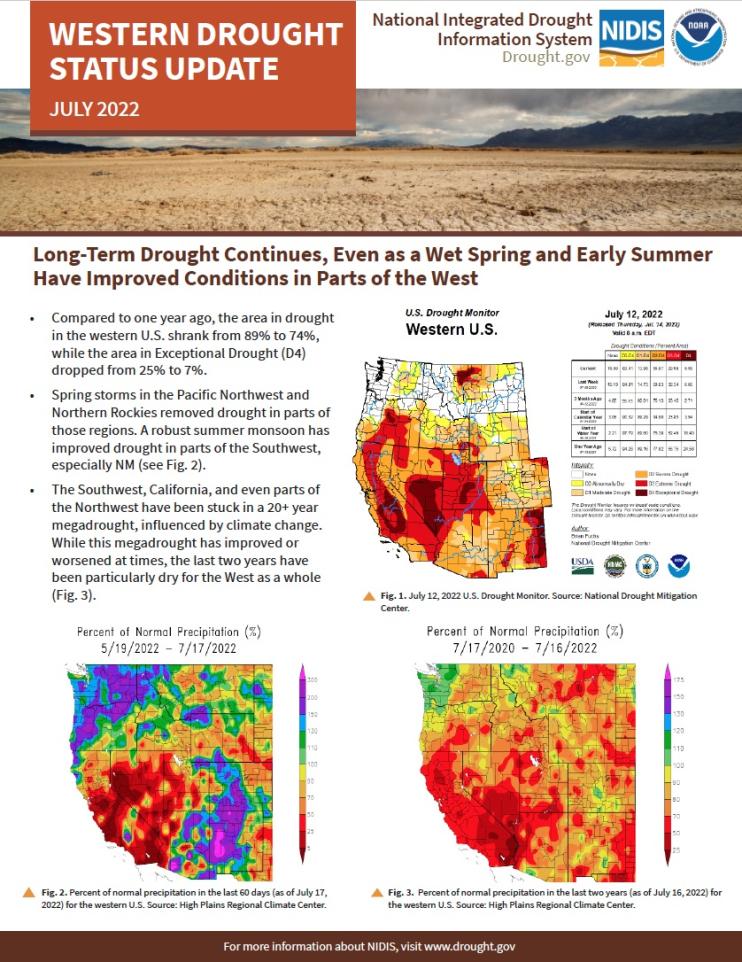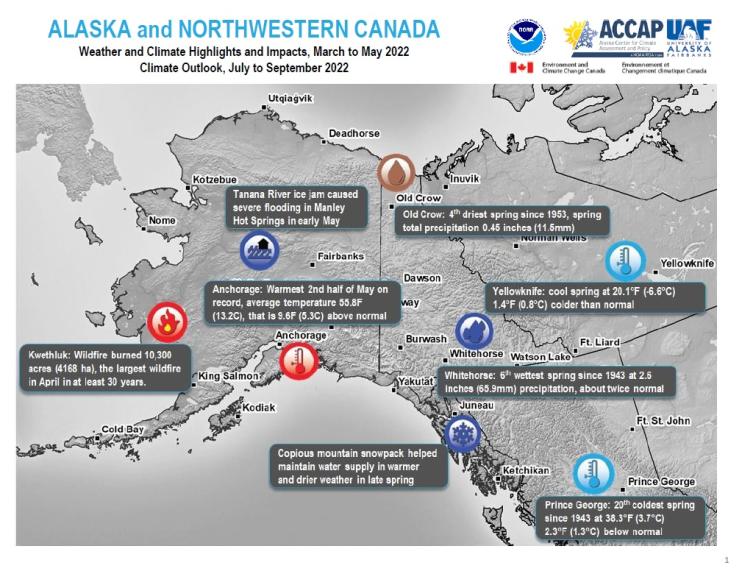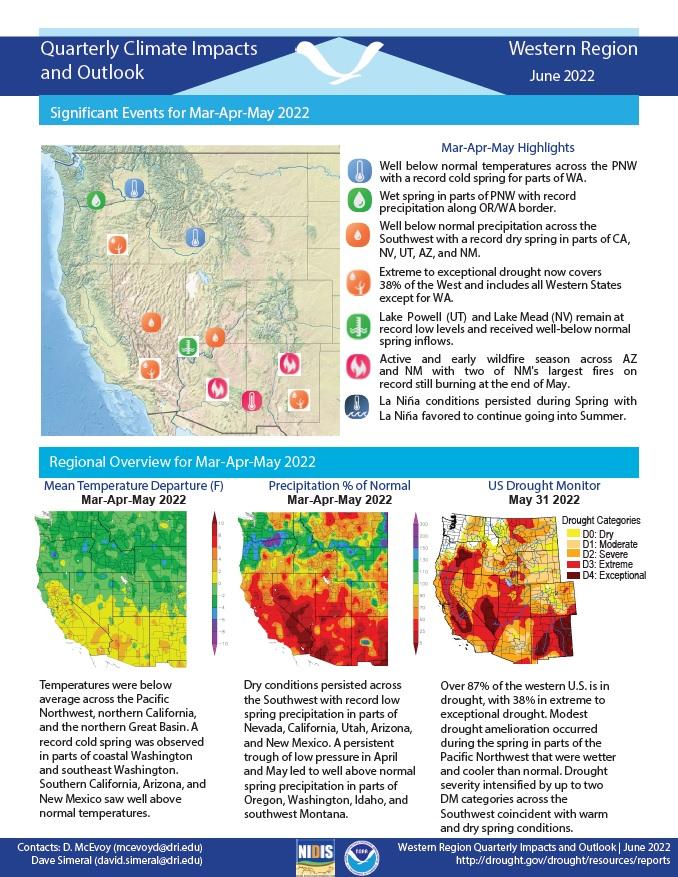The purpose of the 2022 Pacific Northwest Water Year Impacts Assessment is to summarize the water year conditions and sector impacts as a resource for future management of drought and other climate extremes.
Quarterly Climate Impacts and Outlook for Alaska and Northwestern Canada for September–November 2022, with an outlook for January–March 2023. Dated December 2022.
October is the heart of Fall for Southeast Alaska—typically cool and very wet, but October 2022 didn’t feel very fall-like for most areas. In fact, October was the warmest on record for a number of locations and within the top five warmest for many other places.
Quarterly Climate Impacts and Outlook for the Western Region for September–November 2022. Dated December 2022.
Quarterly Climate Impacts and Outlook for the Pacific Region for September–November 2022. Dated December 2022.
For the September–November period, precipitation was near-to-above normal in Palau, Guam, Saipan, American Samoa, and areas of both FSM (Chuuk, Kosrae, Pohnpei) and the Republic of the MarshalI Islands (RMI; Kwajalein, Majuro). Conversely, below-normal rainfall was observed in areas of the central and southern FSM (Lukunor, Kapingamarangi) as well as across much of the Hawaiian Islands.
Quarterly Climate Impacts and Outlook for Alaska and Northwestern Canada for June–August 2022, with an outlook for October–December 2022. Dated September 2022.
The early part of the summer saw record dry conditions that led to numerous and extensive wildfires. The second half of the summer saw excessive rainfall in many parts of the state. Most Yukon watersheds saw record snowpack in this past winter. This was followed by a colder than average spring, which signaled increased potential for flooding during the spring snowmelt season.
Quarterly Climate Impacts and Outlook for the Western Region for June–August 2022. Dated September 2022.
Temperatures were above normal across the entire West with many long-term stations in the top five warmest summers on record. Most of the West saw near-normal or above-normal precipitation this summer.
Quarterly Climate Impacts and Outlook for the Pacific Region for June–August 2022. Dated September 2022.
For the June–August period, precipitation was above normal in Saipan, isolated areas of both FSM (Kosrae, Pohnpei) and the Republic of the MarshalI Islands (RMI) (Kwajalein), and in American Samoa. Conversely, below-normal rainfall was observed in Palau, Guam, western and southern FSM (Yap, Kapingamarangi), southern RMI (Majuro), and across much of the Hawaiian Islands.
Compared to one year ago, the area in drought in the western U.S. shrank from 89% to 73%, while the area in Exceptional Drought (D4) dropped from 25% to 7%. Spring storms in the Pacific Northwest and Northern Rockies removed drought in parts of those regions. A robust summer monsoon has improved drought in parts of the Southwest, especially western New Mexico. The Southwest, California, and even parts of the Northwest have been stuck in a 20+ year megadrought, influenced by climate change.
Quarterly Climate Impacts and Outlook for Alaska and Northwestern Canada for March–May 2022, with an outlook for July–September 2022. Dated June 2022.
The current snowpack in the Yukon is largely unprecedented, with many sites close to meeting or exceeding their historical monthly records. The higher than normal snowpack and cool spring temperatures may contribute to flooding. This will be especially true if warmer than average temperatures occur in the early summer and lead to rapid melt.
Quarterly Climate Impacts and Outlook for the Western Region for March–May 2022. Dated June 2022.
Temperatures were below average across the Pacific Northwest, northern California, and the northern Great Basin. Dry conditions persisted across the Southwest with record low spring precipitation in parts of Nevada, California, Utah, Arizona, and New Mexico.


